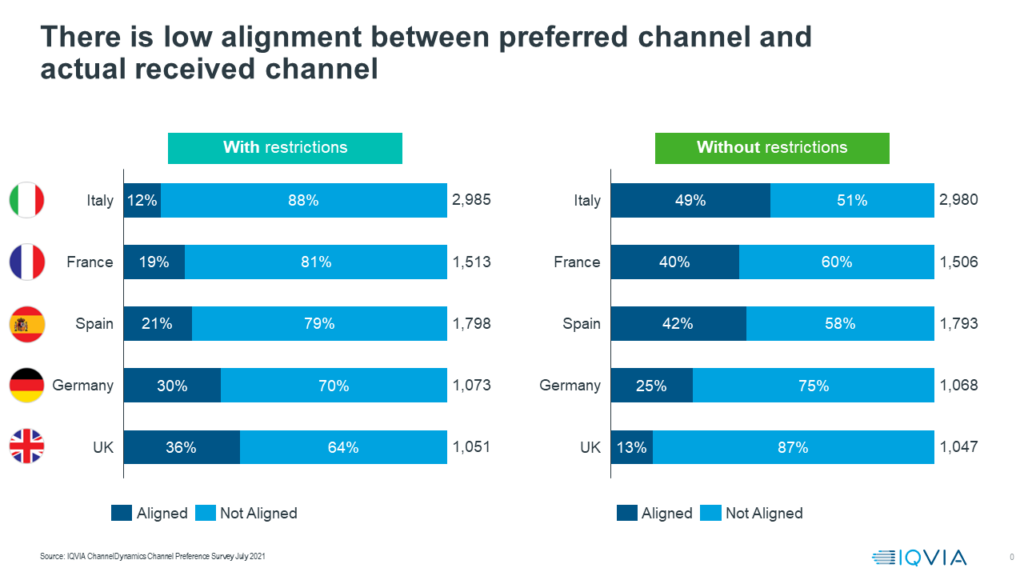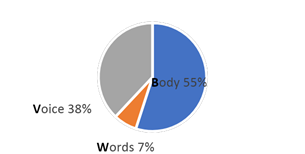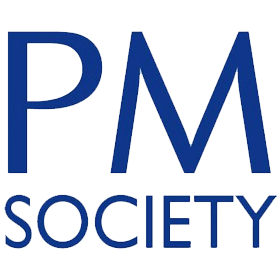This article is the second in a series produced by the Pharmaceutical Marketing Society’s Digital Interest Group to address some of the industry’s most pressing challenges in the digital space. They have been designed and written to inform and share good practice, but most importantly to generate discussion and collaboration.
If you missed the first article relating to Unlocking Consent, you can access it here.
If you find value in the article then please like, share and join in the conversation. If you or your organisation are not already members of the PM Society then you can see the value of becoming a member here.
What does the pharmaceutical representative of the future look like?
Introduction
The world has undeniably undergone a digital transformation, with all industries now offering us as consumers a choice of how we engage with them. Unfortunately the pharmaceutical industry is a little late to the party.
COVID-19 has forced change in many aspects of our lives, not least the need for all businesses to explore new ways of engaging with both internal employees and external customers – disrupting and accelerating a digital transformation. Many healthcare systems have embraced a change in the way clinicians engage with patients, offering in person and remote appointments or selecting the appropriate channel based on need and urgency. On 31st July 2020, NHS Chief Executive, Sir Simon Stevens, sent a letter to NHS staff, asking them to ‘embrace the positive impact that digital and remote technologies have had in maintaining critical public health services during a time of need, and ‘lock in beneficial changes’ (NHS England). Is this the future for healthcare? How will this increased use in technology impact on how healthcare professionals (HCPs) engage with pharmaceutical companies.
What is the new normal?
Many people across the industry are waiting for things to return to normal… Will it ever return to normal, or do we need to accept there is a new paradigm for pharmaceutical engagements with healthcare organisations and professionals.
As field personnel rush back to in person engagement, it is worth acknowledging recent data presented by IQVIA (Figure 1) highlighting there is a stark difference between HCP channel preference and reality.
What are we doing to better understand how our customers would like to engage with us?
Are we brave enough to ask the question?

Figure 1: There is low alignment between preferred channel and actual received channel (IQVIA).
Access also continues to be a challenge in many European countries; a recent survey highlighted that 48% of HCPs expect to have less contact with pharmaceutical company employees in the 12-18 months post-COVID (The Creative Engagement Group Ashfield). How do we, as an industry, ensure the interactions we do have are meeting the expectations and needs of these customers?
Importantly, data shows that HCPs still value interactions with pharmaceutical companies, with 47% seeing conversations with field teams as vital in the dissemination of new and meaningful information.
So how have we responded to this shift over the past couple of years? Veeva pulse data from 2022 showed an increase of 444% Veeva approved email sends, and a 321% increase in Engage meetings, when comparing January 2020 with April 2022 (Veeva Systems 2). We need to be conscious of the impact that this has on the HCP – With potentially already very busy inboxes, if we’re sending an email with little value, chances are this will reduce the impact of the channel as a whole for us… With 23% of HCPs sometimes feeling overwhelmed by the number of emails they receive from pharma (The Creative Engagement Group Ashfield), are we maximising the use of this channel? In a crowded market with commercial content overload, there is a need to cut through the noise; and this is exactly what the representatives of the future can achieve.
What skills are required for pharmaceutical representatives to become channel masters?
The concept of engaging with customers using alternative channels in addition to face to face is not new to pharmaceutical representatives, but in many organisations the level of acceptance and execution has been low/slow. The pandemic created a burning platform for all organisations to ensure they have the technologies in place, appropriate digital content and the required skills and capabilities of those creating the content and engaging with customers. But as the saying goes, you can lead a horse to water but you can’t make it drink.
Is there really a difference between engaging face to face vs virtually?
Historically, when access was difficult, we almost had freewill to walk the corridors in the hope that we would bump into someone. In our evolving world as access is restricted, we don’t want to be seen to be overcalling the secretary/reception staff or spamming via email and becoming a nuisance. This means that planning is crucial for our success.
How much more value do our interactions need to add? We need an even more compelling reason to speak to someone on a virtual platform than we do face to face in order to get that first appointment.
Clearly for a representative to be effective in the virtual setting they would need to be confident and competent at using the technologies available. And while the call flow is the same irrespective of channel we do need to consider the concept of emotional communication. Professor Albert Mehrabian identified 7% of meaning is communicated through spoken word, 38% through tone of voice and 55% through body language (Mehrabian 43)… Imagine losing the ability to read body language. What we say and how we say it becomes even more important. Questioning and listening need to play an even greater role in virtual interactions.

Currently all pharmaceutical companies are trying to work out how to transition a traditional sales team into a hybrid team. Hybrid teams are able to use a broad range of channels with clear understanding of how and when to use each. First line managers play a critical role in the success of such a transformation, but they too are required to develop skills to successfully manage and coach a hybrid team.
Organisations need to invest in developing their people, which must start with a mindset change and reinforcing what’s in it for them. Quite often we focus on why it’s important for our customers and the value of the insights we gather, as an organisation, to help improve the creation of future content, whilst failing to win over the hearts and minds of those on the front line, i.e the Sales Representatives, Account Managers, Medical Science Liaisons and First Line Field Managers.
What capabilities will create the fortified representative of the future?
Pharmaceutical sales representatives need to use skills, knowledge, content, channels and data to deliver deliberate, thoughtful, personalised engagements that add value to the HCP every time we connect.
Data Driven Decision Makers
- Consolidates insights from multiple sources to curate a personalised journey and experience
- Captures and shares key customer insights with the rest of the organisation
Content & Service Curators
- Utilises the full breadth of content available, curating the insights that will add the most value
- Delivers support that is tailored to the customer considering broader pathway and ecosystem challenges
Channel Masters
- Uses a broad range of channels with clear understanding of how and when to use each
- Is able to orchestrate channels across a journey
Customer Relationship Management (CRM) System Maximisers
- Constructively feeds-back to marketing about materials and potential support shortcomings
- Delivers tailored experiences to HCPs in a remote setting, using industry best practice techniques
- Understands the company’s consent strategy, supporting the value-added narrative that consent is (click HERE for an article on unlocking consent in Pharma)
- Reviews all customer CRM information to inform future engagements that have the best chance of movement along the adoption ladder
- Understands the importance of data quality and takes pride in ensuring the data for their customers and territory is current, correct and complete
In addition, and this may go without saying, but they will also need to make the most of every in-person engagement with their customers, build a personal relationship with a customer based on trust, value and respect with a clear objective to add value to the customer and their patients.
What are our top tips?
For the sales teams: mastering digital and your respective CRM/Closed Loops Marketing (CLM) systems will be at the forefront of development to enable deliberate, thoughtful, bespoke personalised engagements to add value to the HCP at every connection and, we believe, will be critical for future career success.
- Speak up constructively, if you do not have the CRM/CLM functionality that you need such as:
- Simple, friction free consent capturing
- An effective digital sales aid aligned to the sales model
- Helps you identify a clear source of business
- Enables tailored discussions with navigational ease
- Allows you to quickly and easily handle objections
- Is able to provide 360 feedback around customer and account insights
- The appropriate information and process to pre-call plan and conduct post-call analysis
- Suites of rep triggered emails (also known as Approved Emails in Veeva) that support the latest product, therapy area and medical education available that allow you to follow up a sales call or create a touch point between meetings
- Integrated customer segmentation and adoption ladder tracking
- Get comfortable with remote engagements, they’re here to stay
- Schedule 1:1 ‘mock’ calls with colleagues, so you can experience what it would be like to be on the receiving end
- Find a way of working that works for you and your style, for example, joining the call on your laptop and your iPad, using the laptop for the audio and video whilst using the iPad to share your sales aid. That way you can see what the HCP is seeing and with a larger image of your HCP, you can better monitor their engagement with the call
- Practice, practice and practice again until you are competent with the technology and able to quickly and calmly deal with any glitches or issues that come up during a call
For the marketeers that will be enabling the pharmaceutical representatives of the future, communication will still be the number one improvement in the move to omnichannel and enabling deliberate, consistent personalised engagements that add value to the HCP at every touchpoint along their journey with the brand and organisation.
- Set-up Sales and Marketing meetings on a regular basis to cover upcoming marketing updates to support an omnichannel journey for your customers
- Set-up territory account planning meetings with a cross-functional team to remove barriers and maximise account-level opportunities
- Implement a system and review your target HCP channel preferences
- Plan customer journeys for each adoption ladder stage, associated to segmentation
- Ensure the consent strategy is clearly communicated to the field team
- Make sure you are collecting, regularly reviewing, sharing and acting on the data you and the field team need to understand your market, customers, content effectiveness and track your key performance indicators
In summary, the rep of the future believes in the effectiveness of digital and remote channels, is competent and confident in engaging with appropriate customers via these channels and values and acts on the data and insights generated from these engagements.
How do we get there? Well that may have to wait for another Digital Interest Group article.
Works Cited
- The Creative Engagement Group Ashfield. “Are your field teams ready to excel in the new era?” LinkedIn, 2022, https://www.linkedin.com/posts/hartmut-kleck-77637888_fantastic-piece-of-research-done-by-our-tceg-activity-6897537877698240512-1-cV/.
- IQVIA. ChannelDynamics Channel Preference Survey July 2021. 2021.
- Mehrabian, Albert. Silent Messages. Wadsworth Publishing Company, 1971.
- NHS England. “THIRD PHASE OF NHS RESPONSE TO COVID-19.” NHS England, 31 July 2020, https://www.england.nhs.uk/coronavirus/wp-content/uploads/sites/52/2020/07/Phase-3-letter-July-31-2020.pdf. Accessed 30 May 2022.
- Veeva Systems. Veeva Pulse Trends April 2022 Insight. Veeva Systems, 2022.
Authors:
Debbie Young, Multichannel Strategy and Customer Insights Director, Otsuka Europe
Ben Keppie, Pharmaceutical Consultant, twentyeightb (28b Ltd)
James Harper, Founder and Managing Director, twentyeightb (28b Ltd)
The PM Society is a not-for-profit organisation that believes excellent healthcare communications leads to better outcomes for patients.
We aim to:
- Support organisations and people in healthcare
- Recognise excellence and promoting best practice
- Provide education and development
- Visit us here to learn more about the society and the value of becoming a member
The Digital Interest Group is made up of passionate pharma digital experts who volunteer their time to:
- Promote digital best practice across pharma marketing and the wider commercial organisation
- Explore and share an understanding of what digital strategies and tactics marketers in the life sciences sector can employ effectively to support their brand, business and customers.
